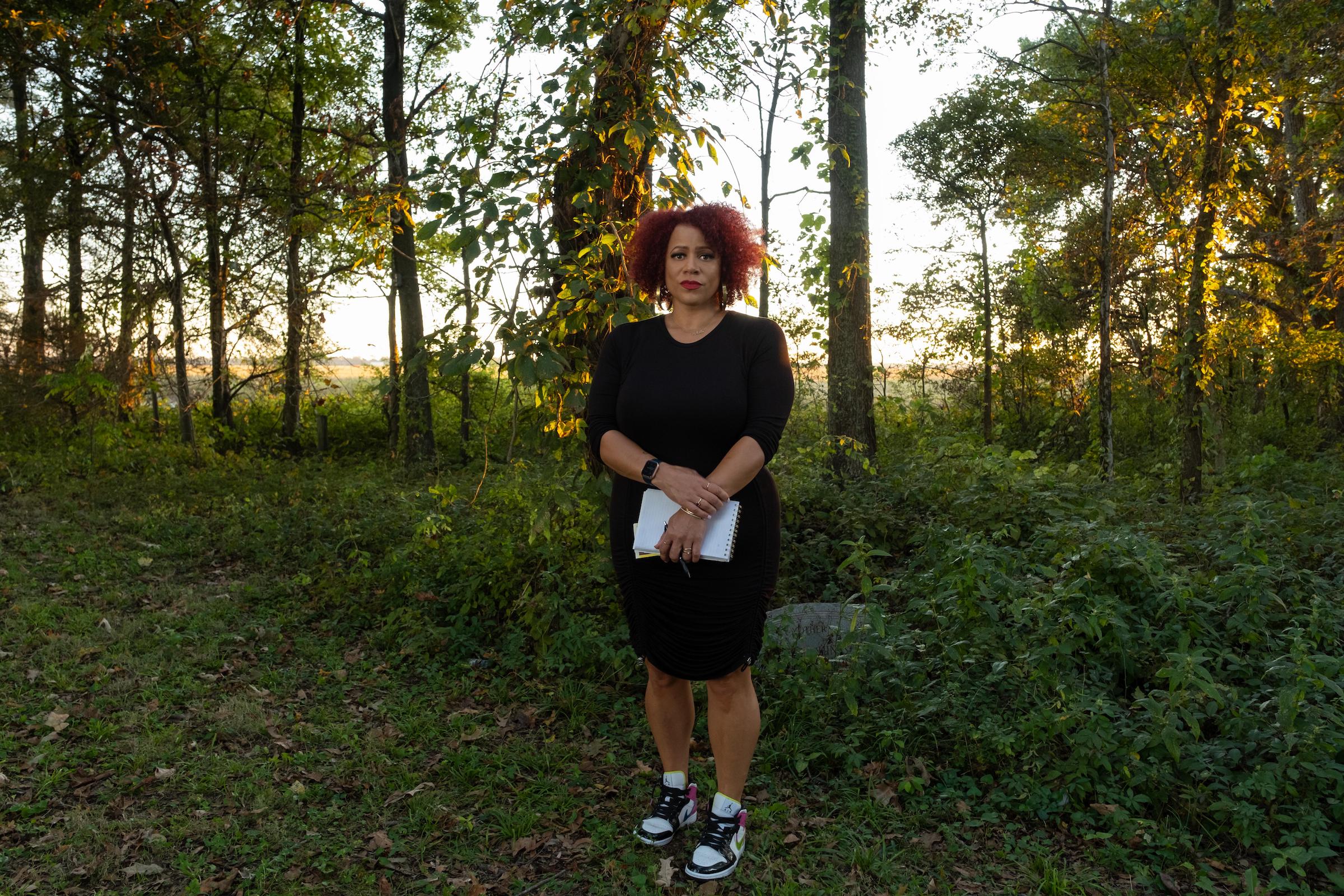
The stated aim of the 1619 Project is to recenter American historical discourse around “the consequences of slavery and the contributions of Black Americans,” and in some senses it has been a victim of its own success. Launched in a 2019 issue of the New York Times Magazine that coincided with the 400th anniversary of chattel slavery in the colonies that became the United States, the project was received with enthusiasm in many quarters and predictable outrage in others. As right-wingers raged against the willfully misunderstood concept of critical race theory, a curriculum released alongside the 1619 Project became their chief target.
Since then, the initiative’s leader, Nikole Hannah-Jones, has defended it, in part, by keeping it in the public eye, first with the publication of the anthology The 1619 Project: A New Origin Story and now in a Hulu docuseries also titled The 1619 Project. Given that the six hour-long episodes draw heavily on essays that have already fueled a book, a curriculum, and a podcast, it’s fair to ask whether the TV adaptation is overkill. But even the least controversial revisionist histories rarely gain a foothold without repetition—and in this case, stories new and old transcend partisan polemic when viewers get to see the faces behind them.
Neither an arthouse essay-doc like Raoul Peck’s Exterminate All the Brutes nor slick edutainment like Will Smith’s Amend: The Fight for America, The 1619 Project balances rigor with approachability. Each episode takes on a different facet of Black life, from voting rights to music. Equally comfortable talking theory with academics, rhapsodizing over Marvin Gaye with critic Wesley Morris, and reminiscing with her own family, whose history becomes a throughline, Hannah-Jones (an executive producer, along with Oprah and others) makes an ideal host.
Anyone who follows the news will be familiar with many issues the series addresses, which makes some episodes feel a bit remedial. But at its best, The 1619 Project makes astute—and highly personal—connections between the antebellum and pre-civil-rights past, and a present in which Black Americans still disproportionately face police violence, workplace exploitation, and other forms of inequality. A centuries-long history of white control over Black women’s fertility is filtered through a contemporary mom’s harrowing encounter with the medical establishment. A provocative episode on capitalism toggles between the economics of slavery and the fight to unionize Amazon. Backlash has not, evidently, diminished Hannah-Jones’ appetite for making bold arguments. That the series is poised to spark fresh controversy only reinforces how much more the 1619 Project has left to say.
More Must-Reads from TIME
- How Donald Trump Won
- The Best Inventions of 2024
- Why Sleep Is the Key to Living Longer
- Robert Zemeckis Just Wants to Move You
- How to Break 8 Toxic Communication Habits
- Nicola Coughlan Bet on Herself—And Won
- Why Vinegar Is So Good for You
- Meet TIME's Newest Class of Next Generation Leaders
Contact us at letters@time.com